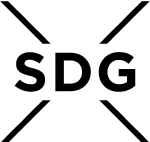Despite gains in gender equality over the last decades, gender norms and biases continue to constrain human potential around the world and there is a pressing need to consider the impacts of these norms across all policies. Gender mainstreaming – first established as an approach to promote gender equality in the Beijing Declaration and Platform for Action of 1995 – outlines a framework for advancing rights for women and girls. Gender mainstreaming places women at the centre of the development agenda with the goal of transforming discriminatory social institutions, laws, cultural norms and community practices. For the SDGs, this implies designing, implementing and evaluating policies, programmes and laws for all 17 goals, not just gender equality, through the lens of gender.
However, in order to be transformative, gender mainstreaming within the SDGs must also aim to better address the needs of people who face prejudice due their sexual orientation, race, caste, faith, disability, or age. What can stakeholders from research, policy and practice do to catalyze more inclusive development? How can programmes to remedy gender discriminatory norms and practices be leveraged? In this panel, speakers from academia, grassroots and funding organizations will discuss the importance of intersectional thinking in the SDG agenda.
Moderator for the session: Anna Rego (Policy Manager, J-PAL South Asia)
Speakers:
- Seema Jayachandran (Associate Director- Policy, J-PAL South Asia)
- Dipta Bhog (Head of Research, Innovation and Partnerships, The Third Eye Portal)
- Noopur Jhunjhunwala (Monitoring, Evaluation and Partnerships Coordinator, UN Women)

